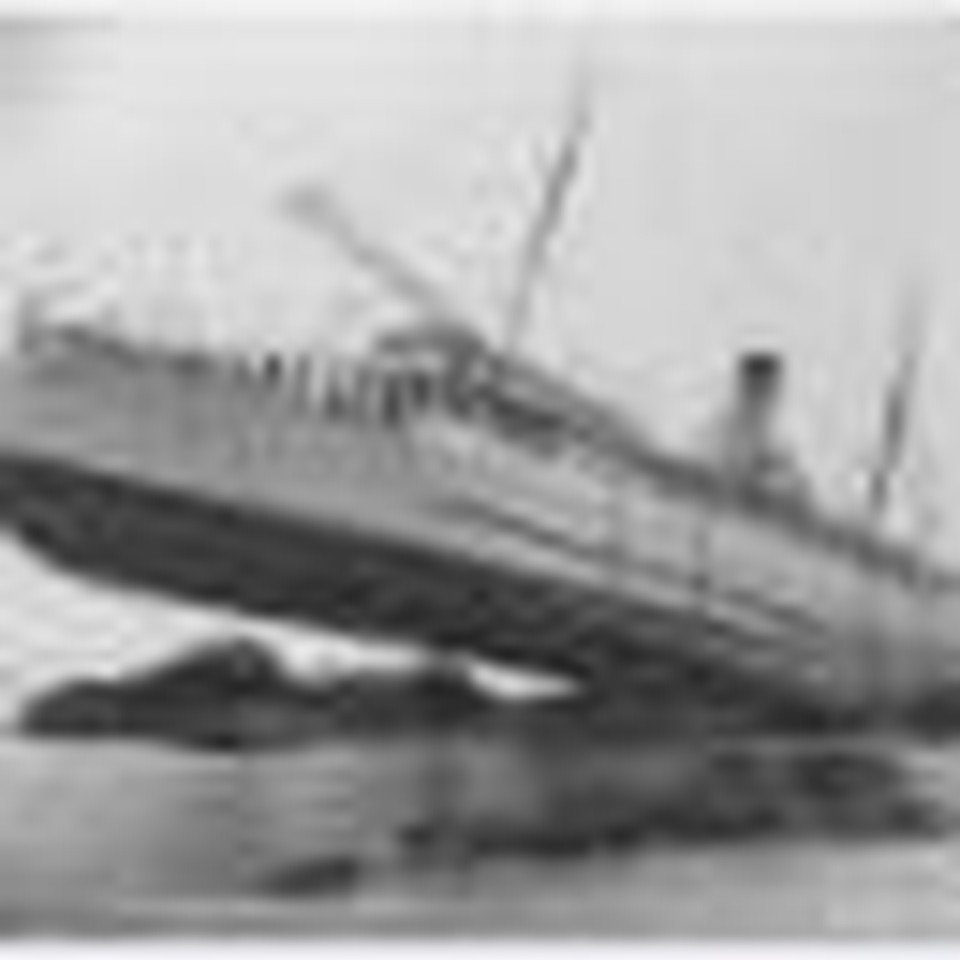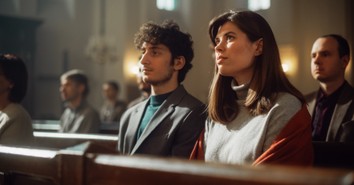My Life is not The Story

Everybody views the world from a particular perspective. I have a friend who thinks of his life in terms of the clock. He sees every opportunity and every task in terms of how much time each will require of him. I know another who sees her life as a big symphony, with sweeping movements and the occasional crescendo. I see my life largely in terms of a story.
I think that it is very common to view life as a story, and in many ways, this makes perfect sense. A person’s life has a beginning, middle, and end and is sometimes like a comedy and sometimes like a tragedy. Much of the time, life feels like a mystery. We hope for a happy ending, but we won’t know until the final scene plays out.
While all of these things are true, I notice one enormous flaw in this perspective. Each of us tends to think of his or her life as the story, though in reality, it is only a story—a humble chapter in a much larger story. This may seem like a subtle difference, but it’s not. Allow me to explain.
If I see my life as the story, then I will view my life as totally separate from anything that comes after me. I won’t be too concerned with whether or not my life has any impact after I die, with the possible exception of the desire to be remembered. When I die my story will simply end and someone else’s will begin. This perspective forces me to think in extremes—either seeing my life as too important or believing it to be irrelevant.
Also, if my life is the story, then it started when I did, when I was born, so I won’t be concerned with what happened before me. It seems to me that Americans think very little of heritage. We like to know if we had pirates or pilgrims in our family trees, but that just adds a bit of musical underscore to our stories. It doesn’t really alter our thinking or assist us in any way. When I think my story begins with me, I feel isolated, as if I am on my own. I determine that I’ll need to figure everything out myself, start everything from the beginning without guidance, and make all the mistakes that come with doing those things by myself. I will refuse to learn from the triumphs and tragedies of others.
If I believe that my story is the story, and my life begins to look as though it’s not going to be a grand adventure in which the treasure is found and the evil is conquered, I’m going to panic. It has to end well. It has to have a happy ending, I might think, or my story is a bad one. Perhaps it’s not looking like an out-and-out tragedy, but maybe it’s looking like it’s not going to make any sense. That’s almost as bad, so I’ll try and force it to have a happy ending—at any cost. I’ll do things that are silly or stupid and possibly harmful to myself and others. But because my story is the only one that matters, they are justified.
Here’s the problem with that: If my story is all there is, the disasters in my life are meaningless! They are just chaotic shipwrecks that steal from the flow of a story that I believe should be happy. In fact, with this mind-set, much of life seems meaningless. Anything that is not happy seems bad, and it will make me angry, probably bitter, and possibly even more panicked to grab happiness wherever I can find it. But this angst and disappointment could be avoided if I would choose to see that my life isn’t the story.
Those of us who tend to get caught up in this cycle can instead choose to look at our lives the way God does. At first, it may hurt our pride to think of our lives as merely a chapter in a bigger story but, in reality, it is the best gift we could possibly receive. With this wider perspective, we can see how the stories of those who are long dead actually introduce and impact our stories. We can learn from their mistakes and possibly avoid these mistakes altogether. The things they struggled against and the things they learned can be learned by us without having to go through the flames they did. This perspective is good because of its practical benefits, but it is even better for its eternal, spiritual rewards.
If our stories are just individual chapters in the full story—God’s story—they give meaning to everything. Disasters are not random bits of chaos. We may not know why they happen, but as Christians we can be certain they have meaning because the story is being authored by God. If we begin to feel panicked that our chapters might not end happily, we can rest in the fact that the ends of our chapters are not the end of the story. Our stories and God’s story will come together and go on for eternity, filled with adventure and comedy and music and amazing feats and all kinds of things we cannot even begin imagine. Looking at our lives as small chapters in a much larger story will elevate the meaning of everything we do. Our choices and actions will send ripples throughout eternity, throughout the rest of the story. The real story. The story.
We are not alone. We do not live meaningless lives. We believers are part of the most amazing adventure ever written, and it will go on for all of eternity. A change in perspective, coupled with solid knowledge of the truth, can make all the difference in the world.
David Carl is the Creative Director of Insight for Kids, the children’s ministry of Insight for Living and creator of Paws & Tales, heard on over 450 radio outlets worldwide and to a growing online audience through webcasts and podcasts. Launched as a weekly radio drama for kids in 2001 by Insight for Living, Paws & Tales teaches children biblical theology through story, humor, and music.
Doing what is right rarely comes without a cost. Teaching your children the hard lesson of always choosing what is right, no matter the sacrifice, requires a lot of attention and loving patience. The Adventures in Theology Kit introduces your child to essential biblical concepts like this in a powerful and easy way. Visit our Web site at www.insight.org/parents to discover more.
Originally published June 16, 2010.







